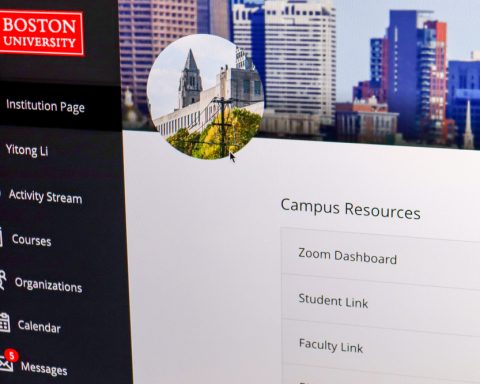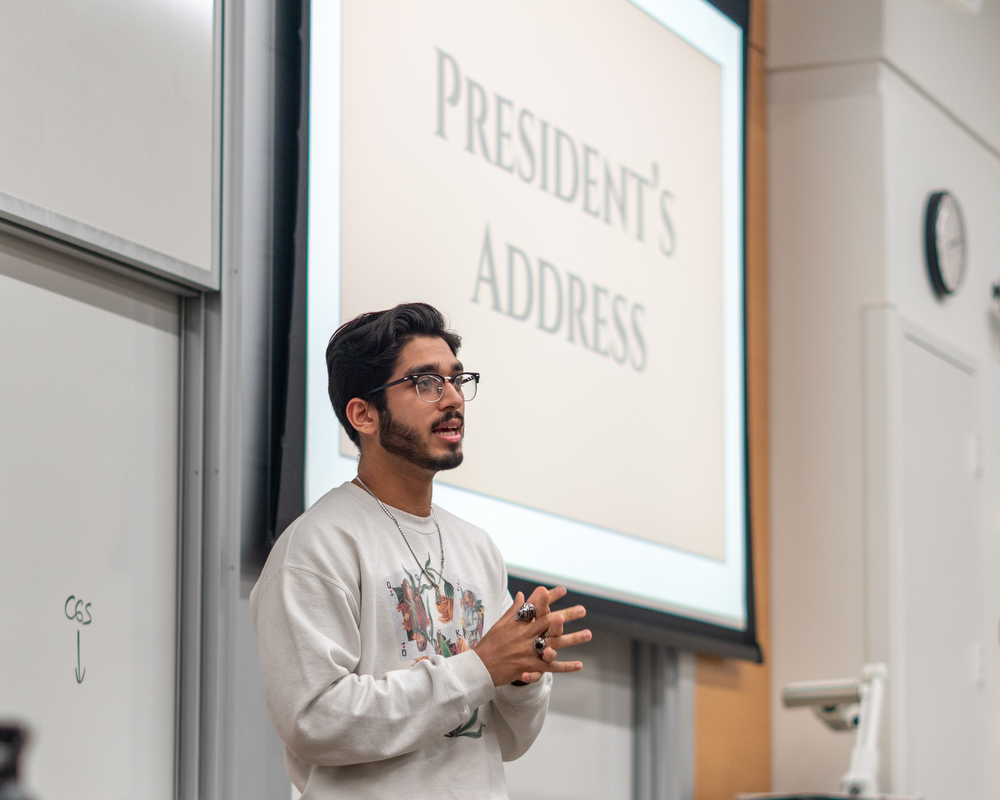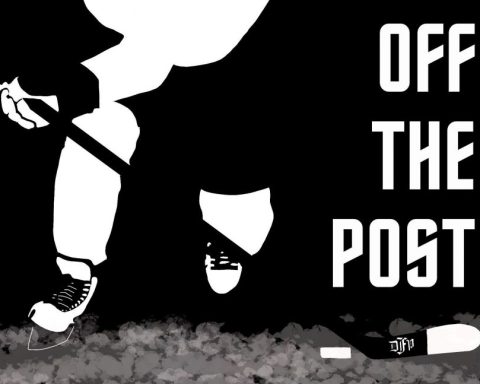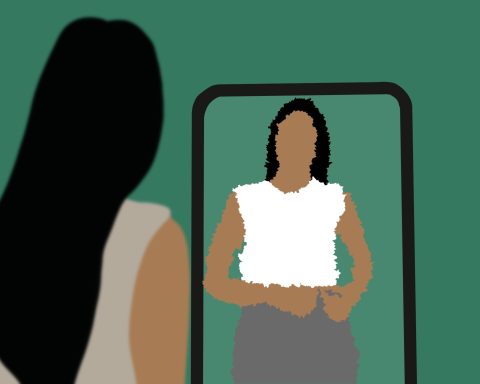Zach Anderson’s parents wouldn’t let him watch “Schindler’s List” when he was growing up.
It was one of those movies — the sort his folks told him “when you’re older, when you’re more mature, you can watch it.” Another was “Titanic,” but when he saw that one, it didn’t make him put “two and two together,” like “Schindler’s List” did.
Anderson, now a senior in the Boston University College of Arts and Sciences, watched “Schindler’s List” for the first time right before spring break. And it got him thinking.
“I’m hearing stories about antisemitism, we all see the news about what Kanye says and the attacks that happen and all the stuff that’s going on between Israel-Palestine, but how aware are people of it actually?” Anderson said. “I felt like putting it all together in one documentary could help spread that out to more people.”
Anderson admitted his documentary might not be on the same level as “Schindler’s List”, but he hopes it reaches the BU community nonetheless. The documentary, which is tentatively titled “Antisemitism: Here On Our Campus,” is estimated to be released on May 2 on YouTube.
“I hope Zach’s documentary stirs up discussion and dialogue and a lot of discomfort, and I hope people talk through the discomfort and don’t throw up a wall and run away even though it’s so tempting for all of us to do,” said David Kotton, a sophomore in CAS who Anderson interviewed in the documentary.
Kotton and Anderson met through BU Hillel, which Kotton has been involved with since day one of his freshman year. Having attended a Jewish school from kindergarten through 12th grade, being a part of a Jewish community feels like home to Kotton. BU, where 20-25% of the student population is Jewish, was a whole new world for him.
In Kotton’s experience, everyone he’s met has been “fully against antisemitism,” but things can get heated when discussing the conflict between Israel and Palestine. It’s a huge topic on all college campuses, Kotton said, and one with murky boundaries.
Anderson and many of those he interviewed in the documentary — including Gabrielle Peck, a senior in CAS — mentioned what is known in BU’s Jewish community as “the rock incident.” The rock on BU Beach is regularly painted by student groups — particularly Greek life who seek to leave their mark on campus. But two years ago, Students for Justice in Palestine painted the rock, and Anderson said many of his interviewees brought it up.
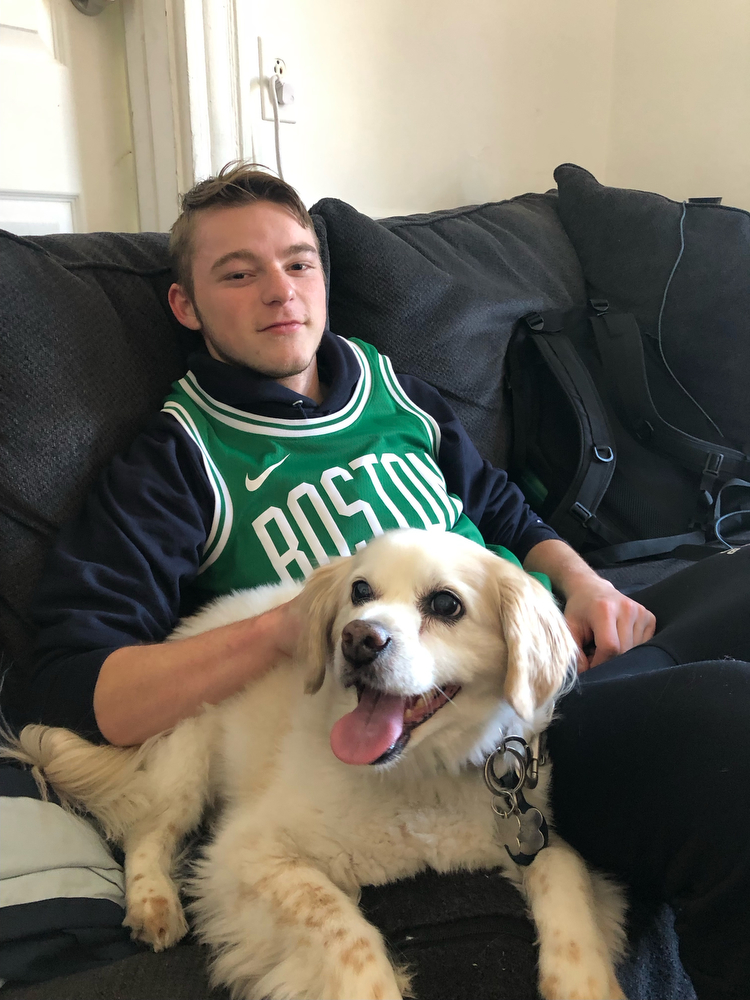
“There was an incident where the rock on BU Beach was painted with some antisemitic phrases that were kind of a call to violence against Jewish people and then went ignored by administration, which was definitely unfortunate,” Peck said.
While “the rock incident” struck a note locally, Anderson said it contributes to a larger conversation on a national level — one that is plagued by alarming Twitter trends and Kanye statements that can spread like wildfire, or worse, get ignored altogether.
“A lot of people thought that when the Holocaust ended that antisemitism ended too,” Anderson said. “But it has risen a lot more recently, and a lot of that is due to social media and people using their platform to spread antisemitic content, and the people that hear the stuff on social media are young college students.”
Ingrid Anderson, senior lecturer in the writing program and associate director of the Elie Wiesel Center for Jewish Studies, said the national uptick has made Jewish students feel less safe on campus, making it an important issue to pay attention to.
“The ways that antisemitism plays out, particularly in young groups like this and on a college campus, can be nuanced and complex,” Ingrid Anderson said. “I think that a documentary about that is really important, not just for students, but for people who care about students, who care about education and who care about confronting things like antisemitism.”
Specifically, a goal of this documentary is to reach out to the widest base possible, not just students within the Jewish community at BU. Peck said she hopes the documentary will speak to a broader audience than those who already have an understanding of antisemitism.
“Unfortunately, with antisemitism particularly, a lot of the time the only people speaking out about it are Jewish people who have experienced it,” Peck said.
And to Zach, film was the best medium through which he could start those dialogues. There’s something about it to him — something that you “just can’t get” from other mediums. While he’s studying two fields that are far from film — economics and psychology — he was determined to learn the production ropes to make his documentary a reality.
“If I dedicate myself to this, even though I don’t know much about the film process, I can make something magical because the story I’m sharing is meaningful,” Zach said.
While his “Schindler’s List” viewing was his lightbulb moment, the true inspiration behind Zach’s documentary came from the conversations he had with his friends through the BU Hillel. For a lot of his life, he felt he could “hide his Jewishness” — at least more so than many of the people he has met at BU. He said “shock” isn’t the right word to describe it, but talking to his friends through Hillel, he realized just how different everyone’s experiences had been coming into the University.
He heard lots of stories — stories from his friends about personal experiences, their lives back home and what their families had been through. He wanted to amplify those stories and — for the sake of his documentary — make a national issue a lot more personal.
“Having stories of modern antisemitism with students that go to school … I’m hoping that a lot of people at BU watch it, so they’re watching stories of people that they also know, of students that they’ve been in classes with,” Zach said. “It’s not just like any other educational documentary of something that’s happening in modern-day news. These are more personal stories.”



